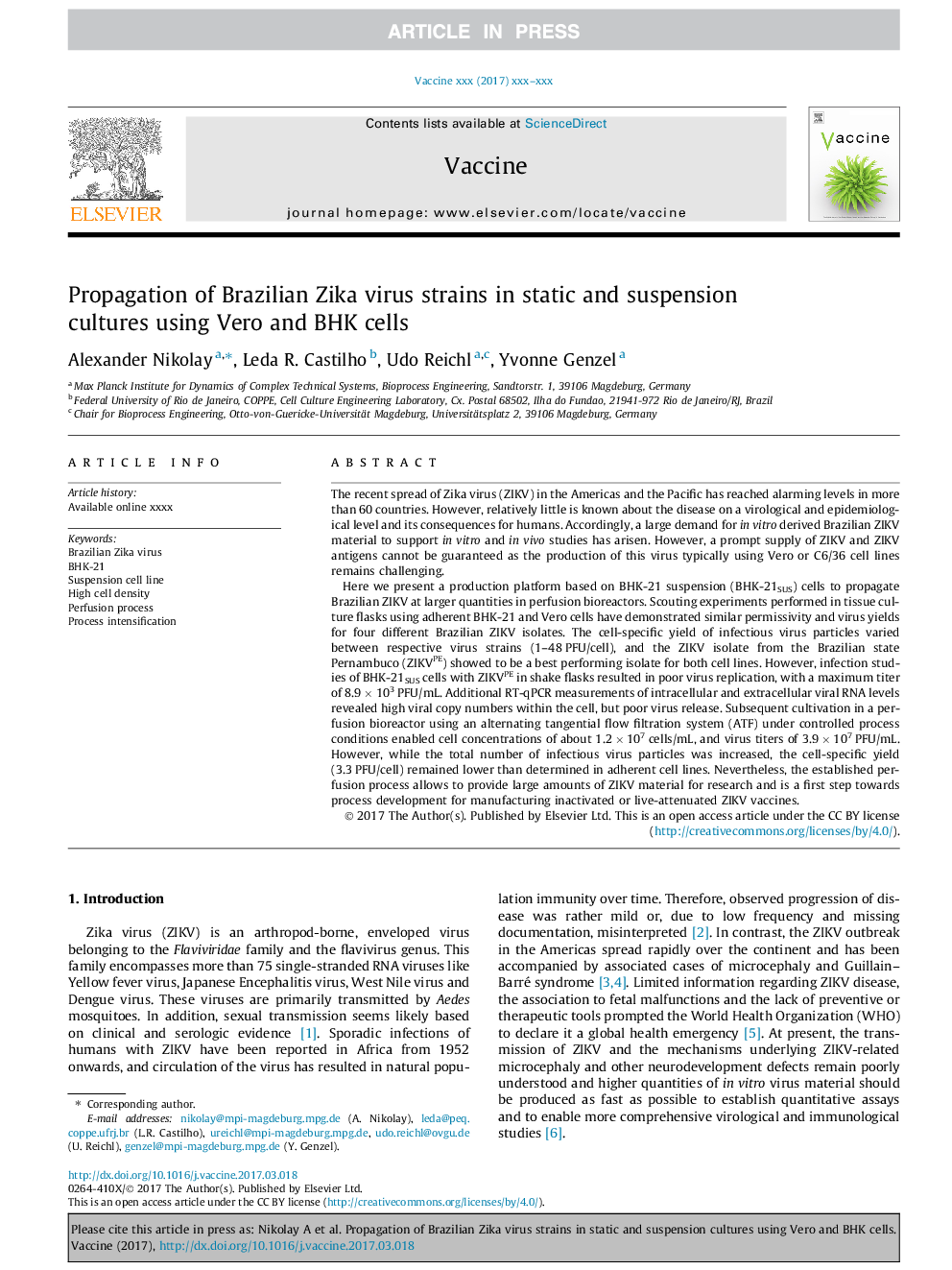| Article ID | Journal | Published Year | Pages | File Type |
|---|---|---|---|---|
| 8485673 | Vaccine | 2018 | 6 Pages |
Abstract
Here we present a production platform based on BHK-21 suspension (BHK-21SUS) cells to propagate Brazilian ZIKV at larger quantities in perfusion bioreactors. Scouting experiments performed in tissue culture flasks using adherent BHK-21 and Vero cells have demonstrated similar permissivity and virus yields for four different Brazilian ZIKV isolates. The cell-specific yield of infectious virus particles varied between respective virus strains (1-48Â PFU/cell), and the ZIKV isolate from the Brazilian state Pernambuco (ZIKVPE) showed to be a best performing isolate for both cell lines. However, infection studies of BHK-21SUS cells with ZIKVPE in shake flasks resulted in poor virus replication, with a maximum titer of 8.9Â ÃÂ 103Â PFU/mL. Additional RT-qPCR measurements of intracellular and extracellular viral RNA levels revealed high viral copy numbers within the cell, but poor virus release. Subsequent cultivation in a perfusion bioreactor using an alternating tangential flow filtration system (ATF) under controlled process conditions enabled cell concentrations of about 1.2Â ÃÂ 107Â cells/mL, and virus titers of 3.9Â ÃÂ 107Â PFU/mL. However, while the total number of infectious virus particles was increased, the cell-specific yield (3.3Â PFU/cell) remained lower than determined in adherent cell lines. Nevertheless, the established perfusion process allows to provide large amounts of ZIKV material for research and is a first step towards process development for manufacturing inactivated or live-attenuated ZIKV vaccines.
Related Topics
Life Sciences
Immunology and Microbiology
Immunology
Authors
Alexander Nikolay, Leda R. Castilho, Udo Reichl, Yvonne Genzel,
